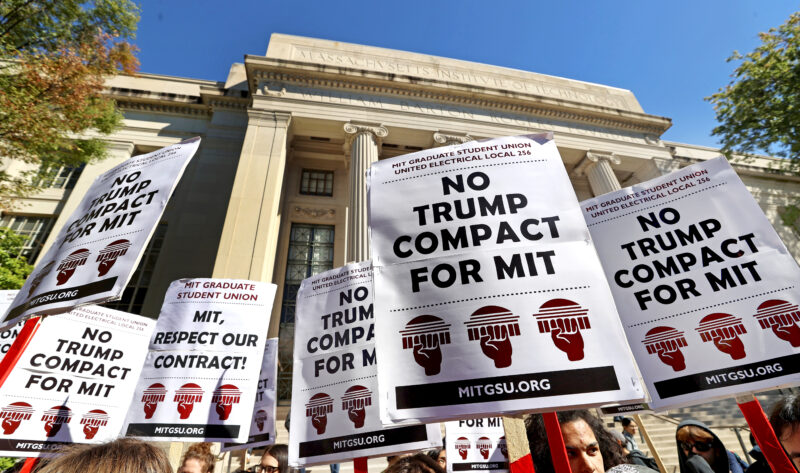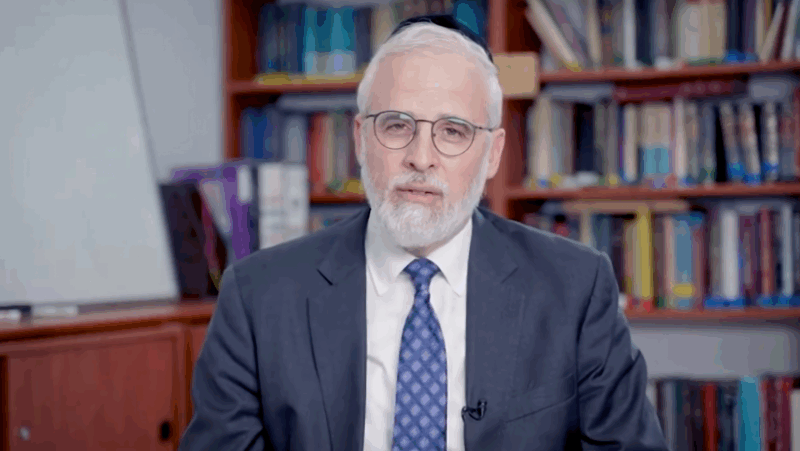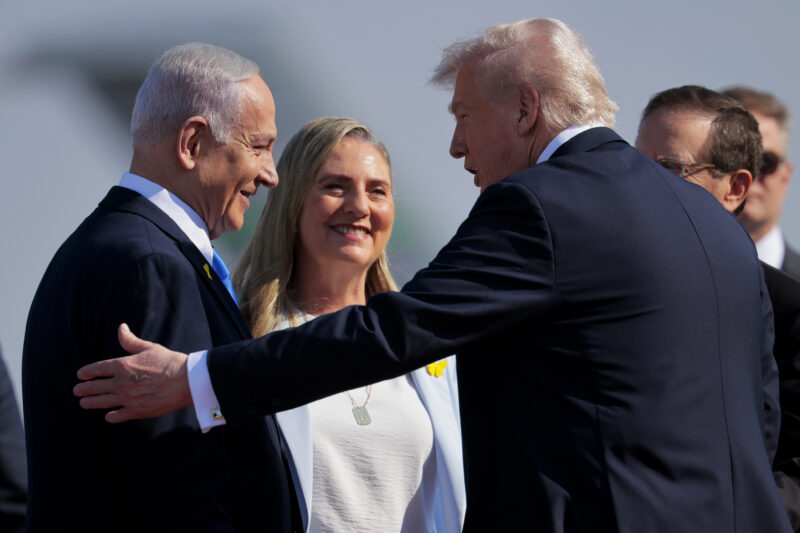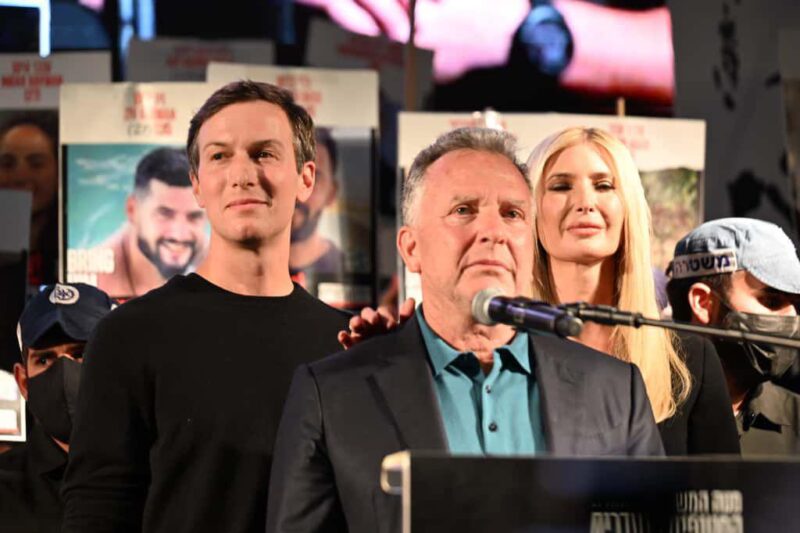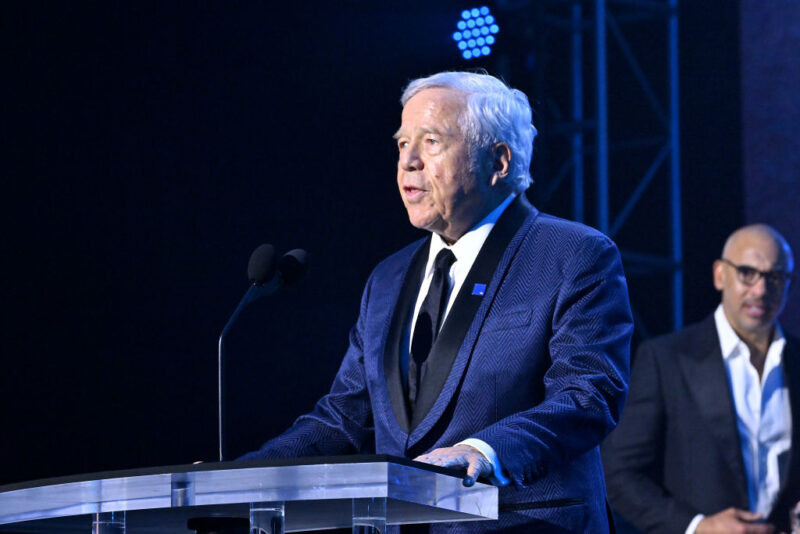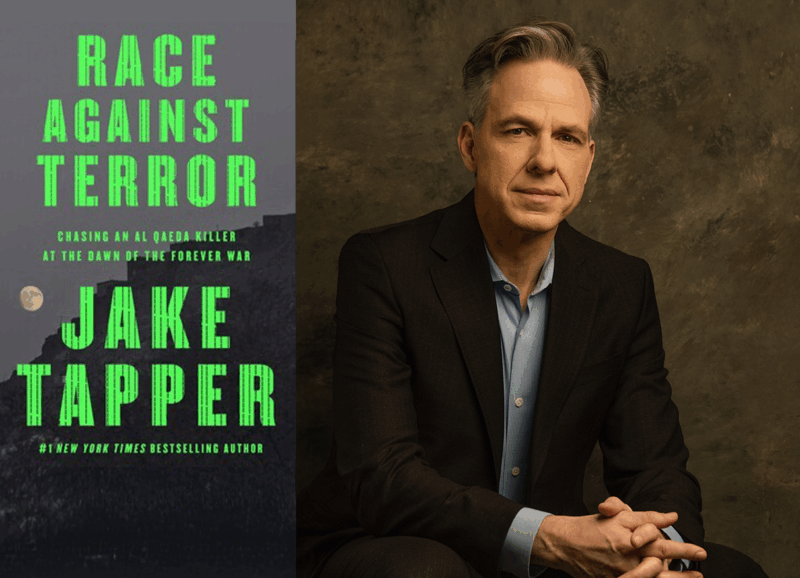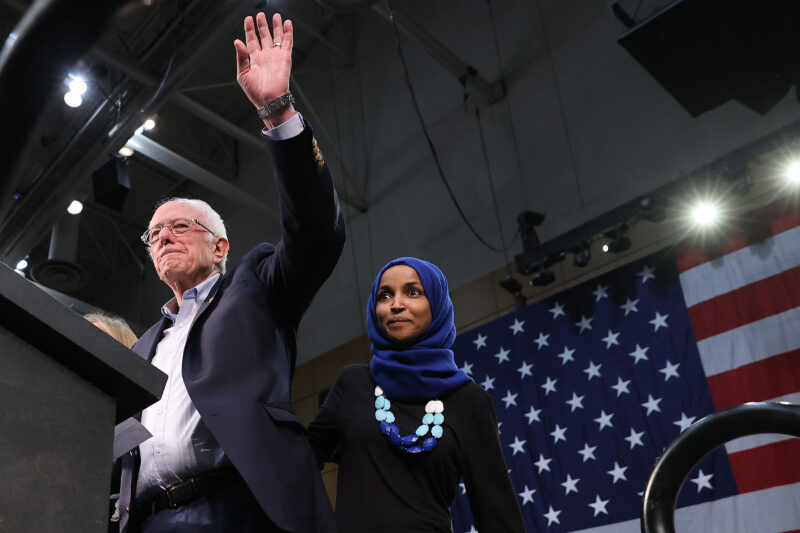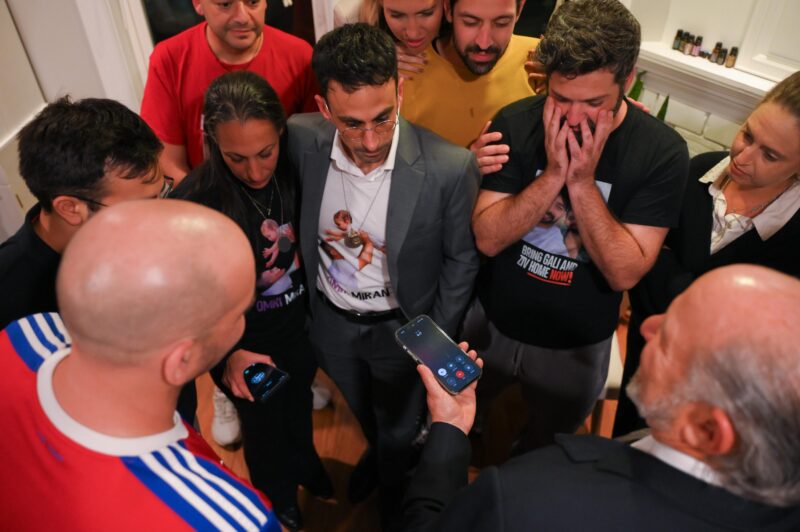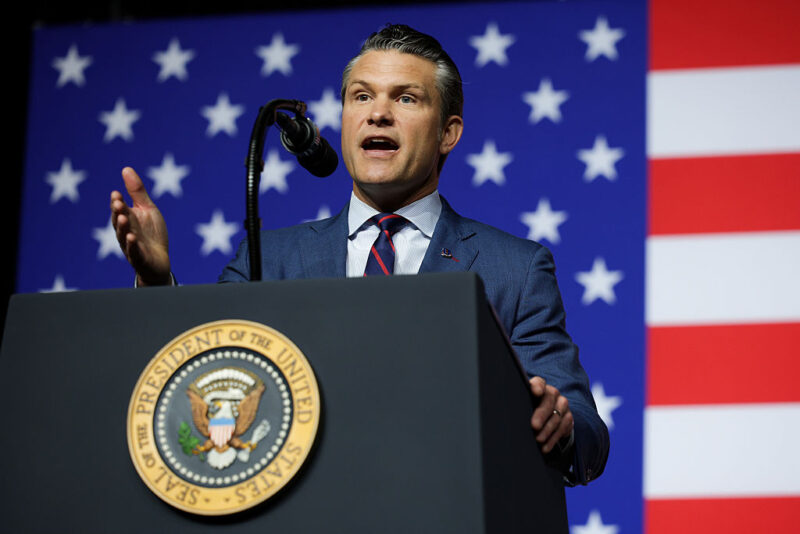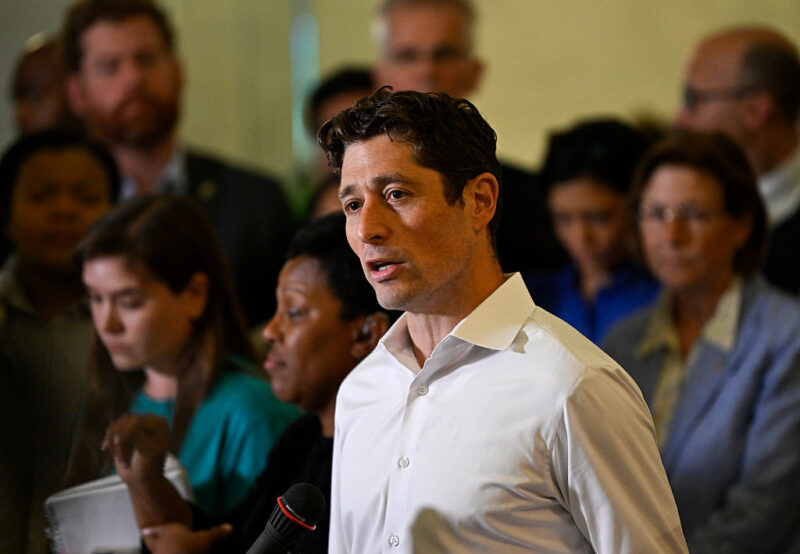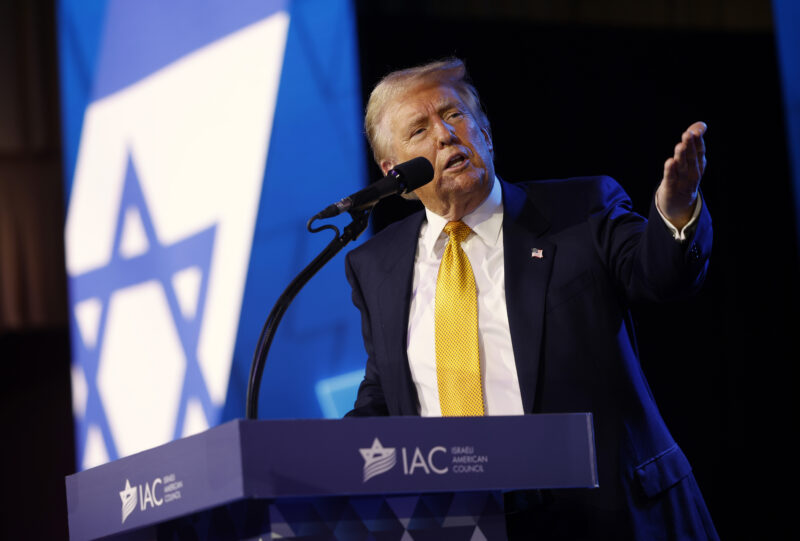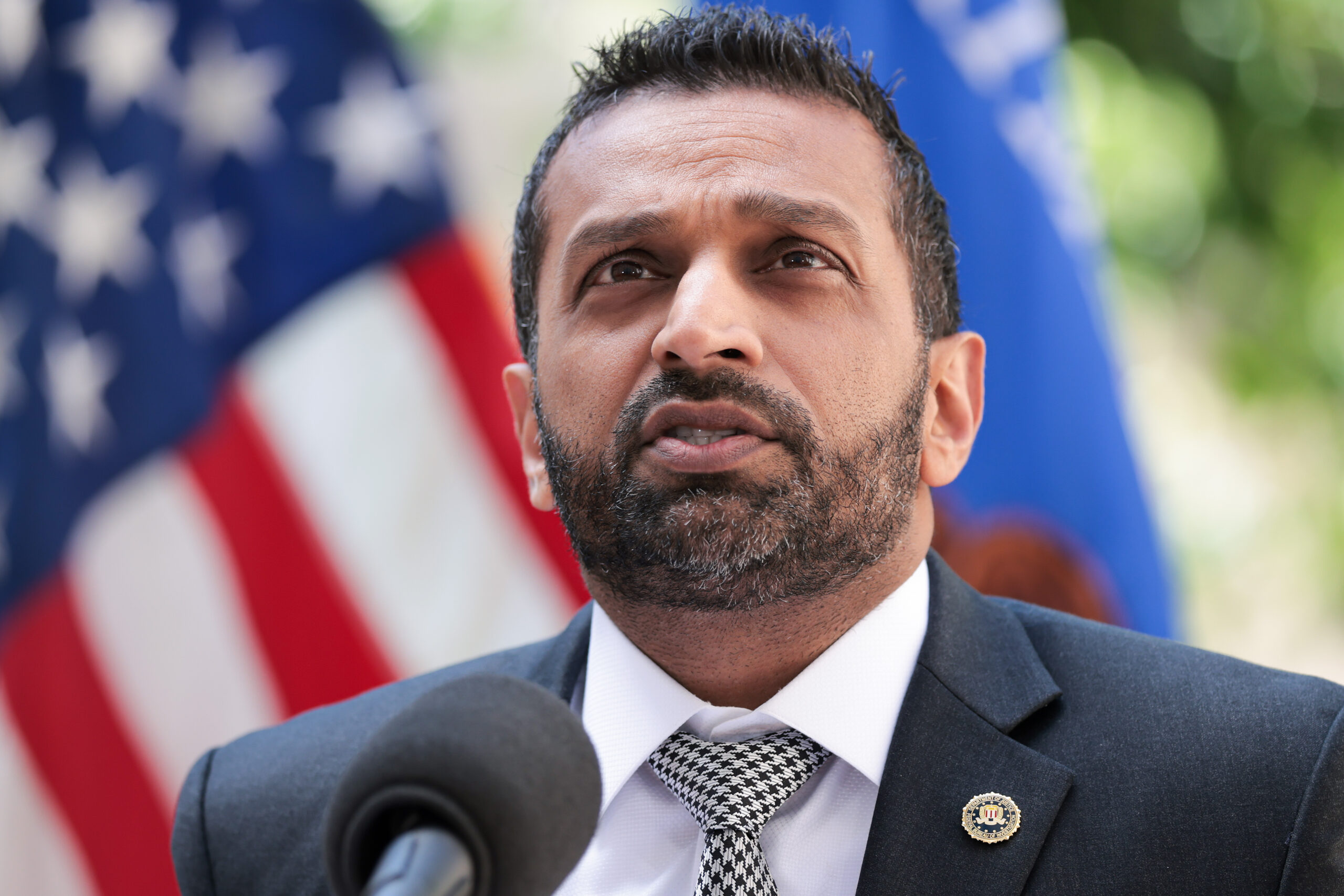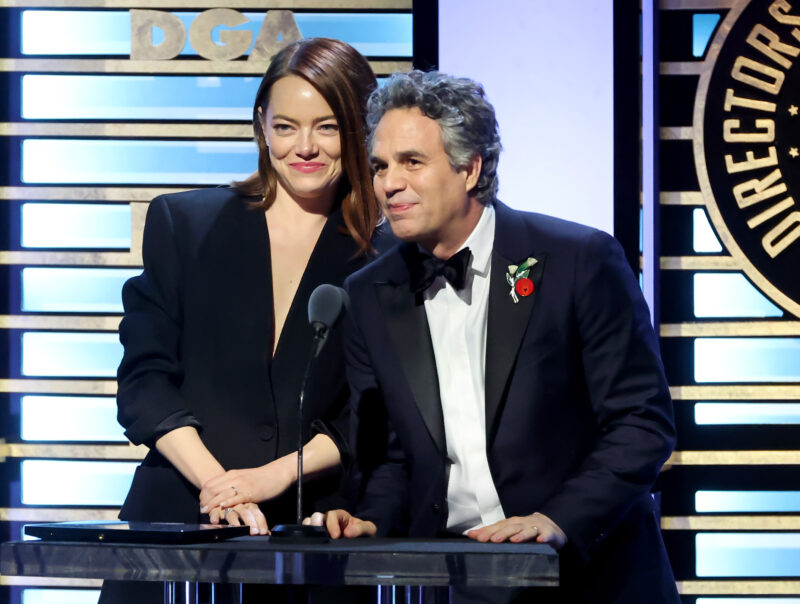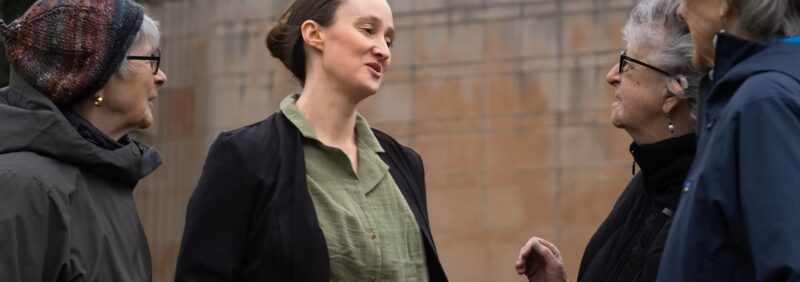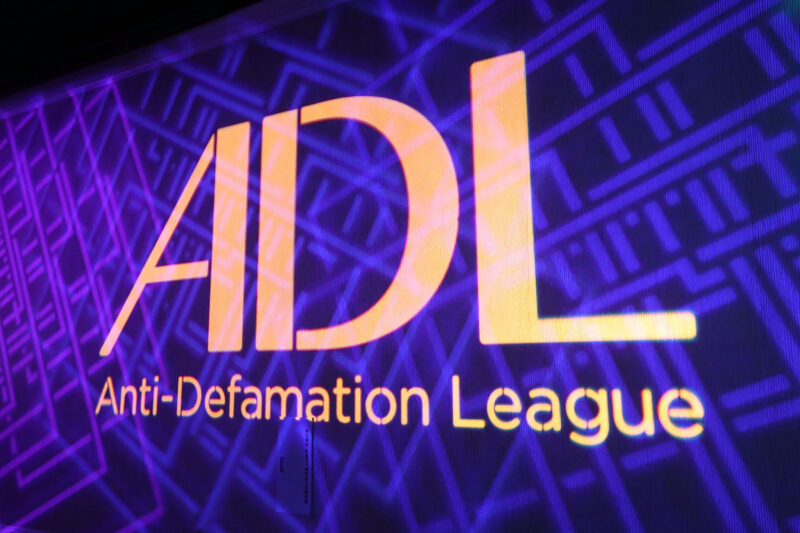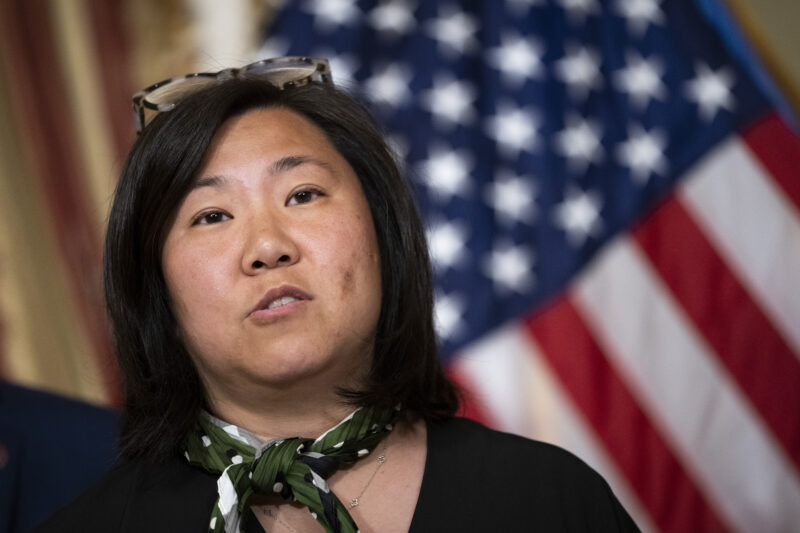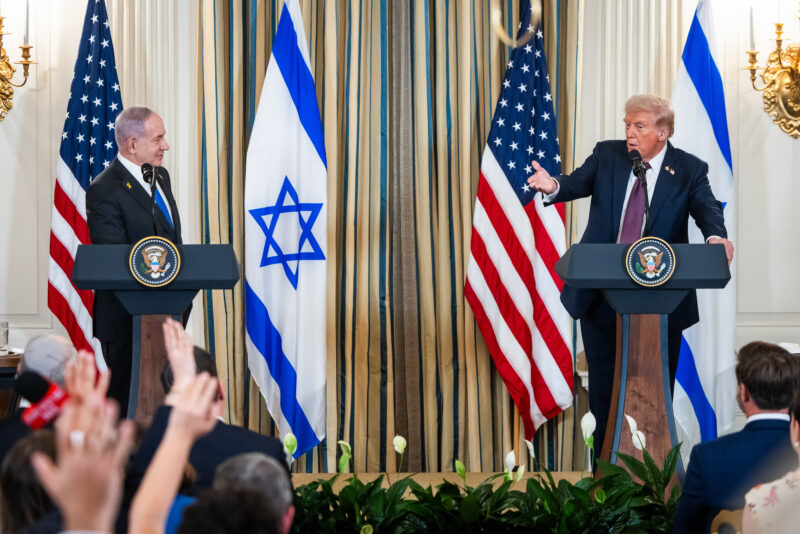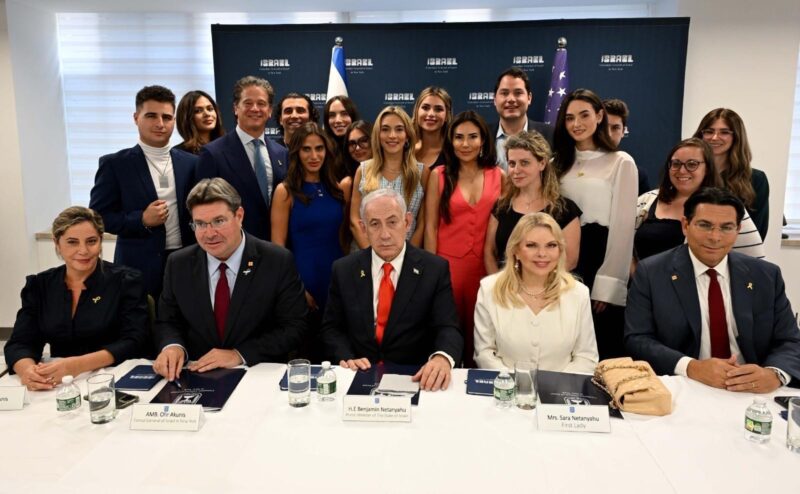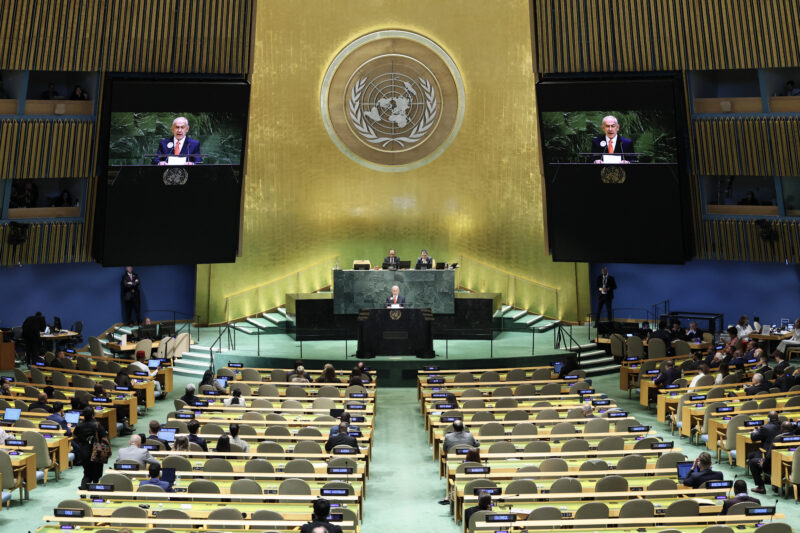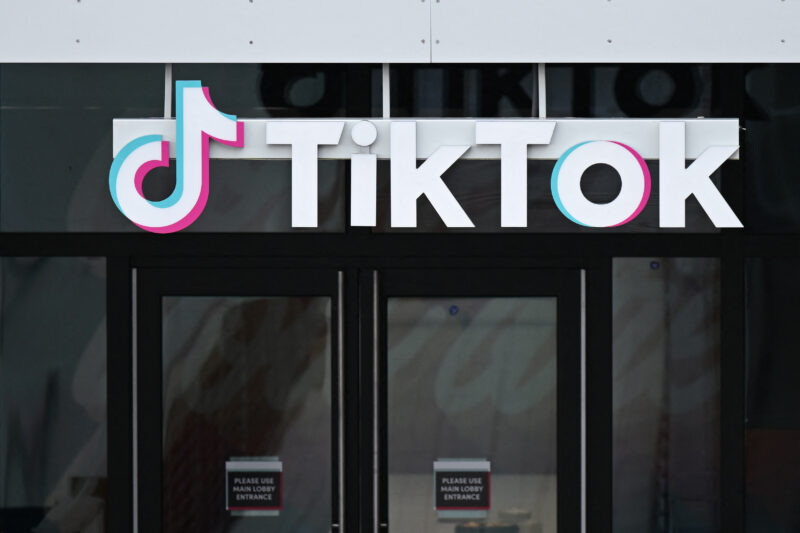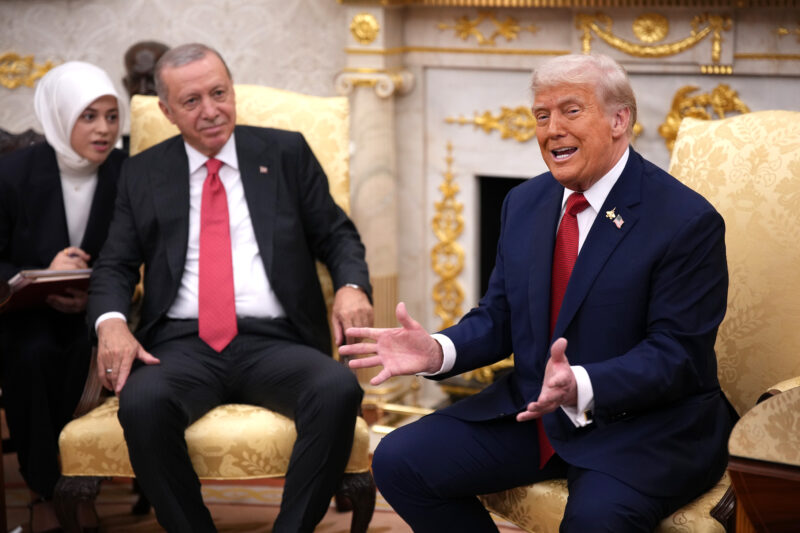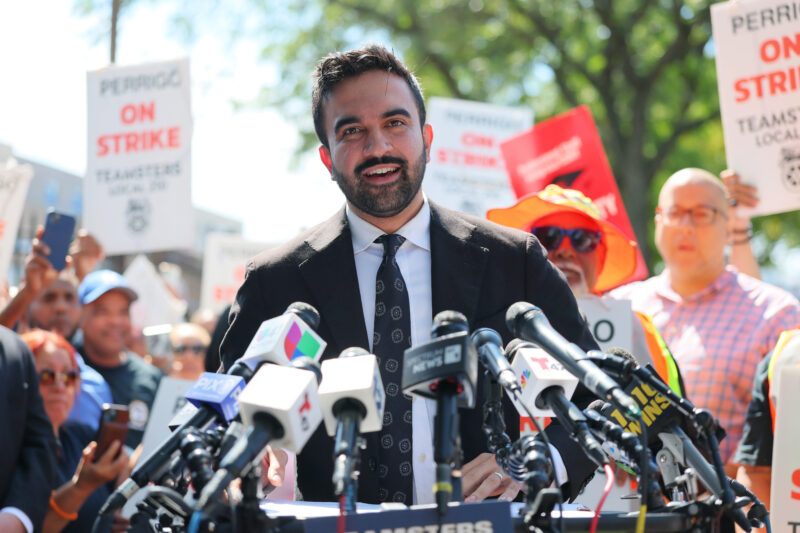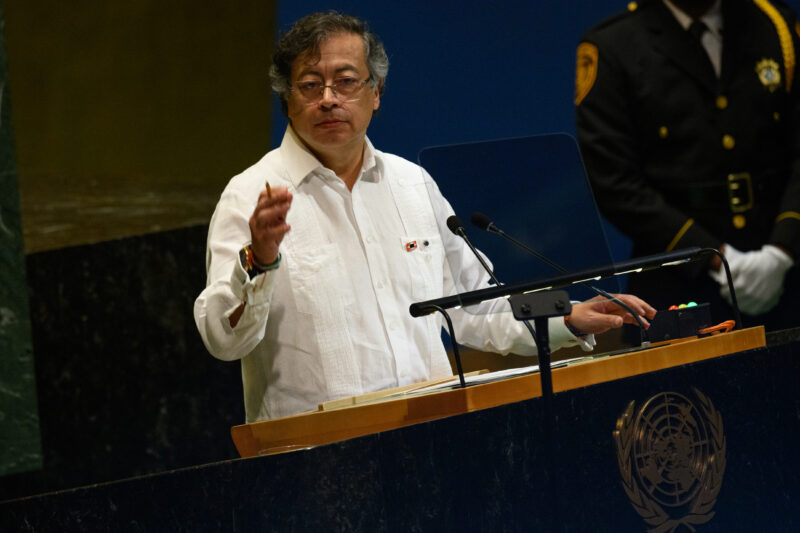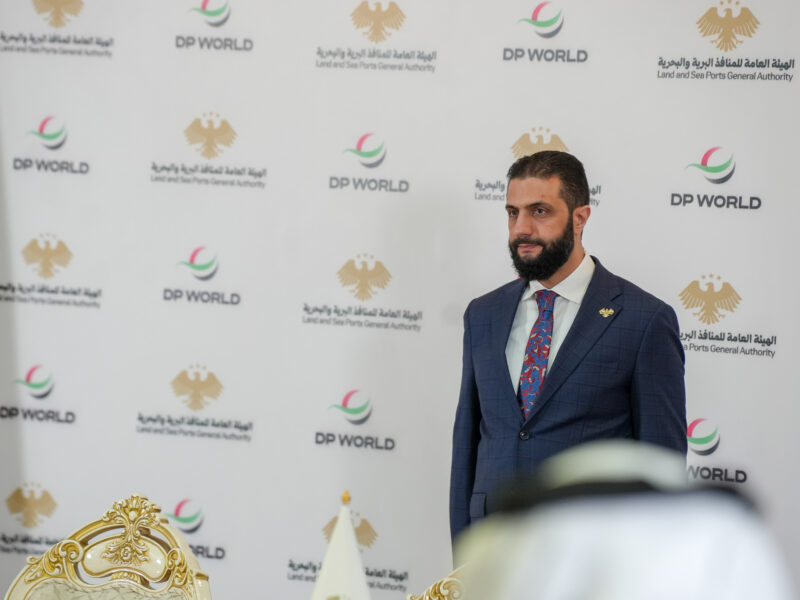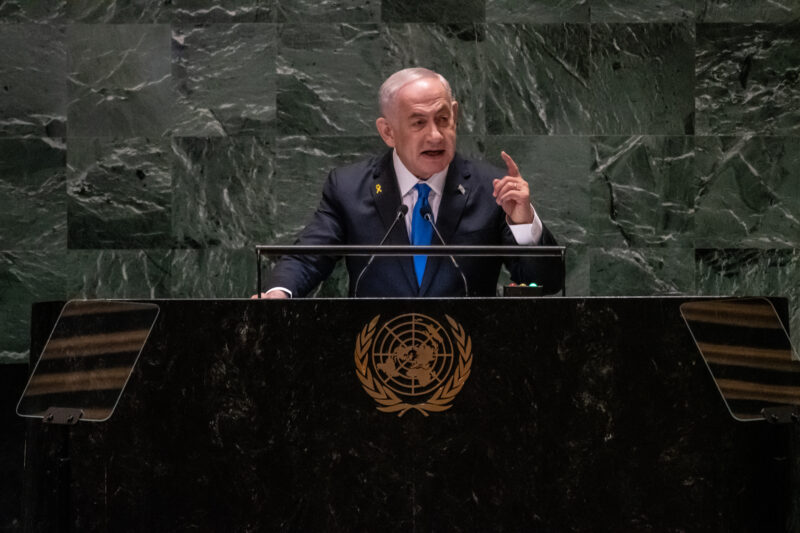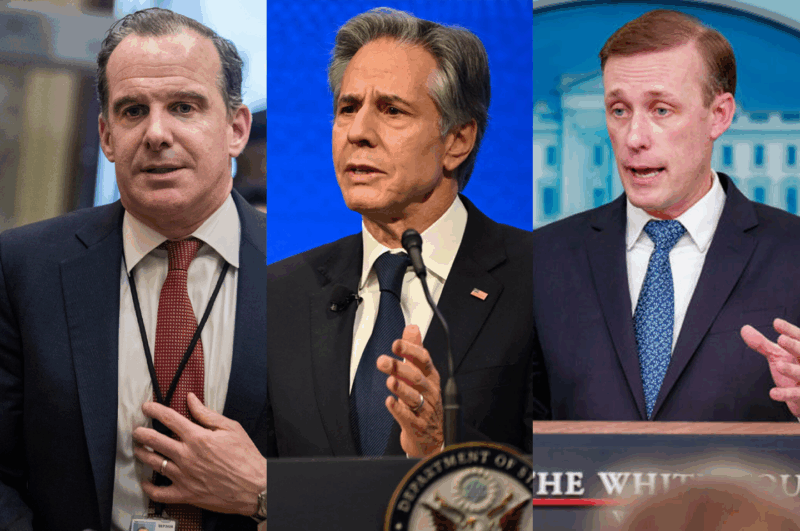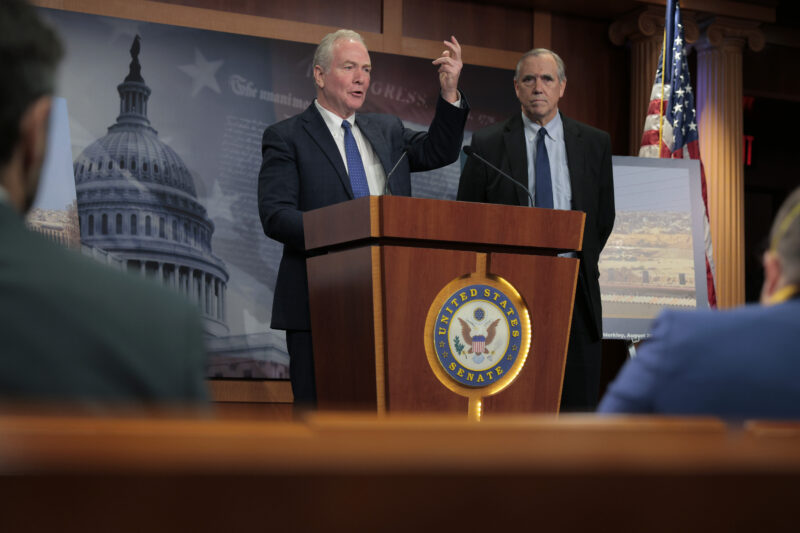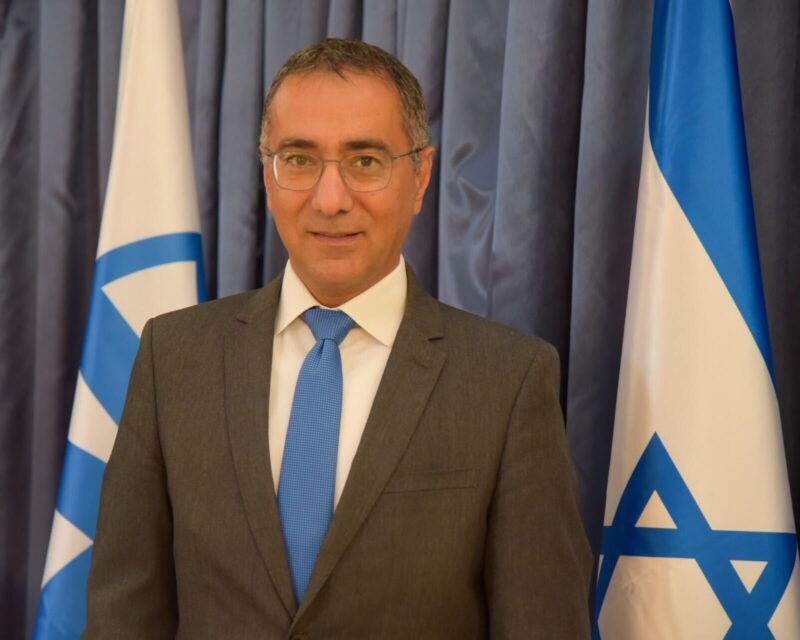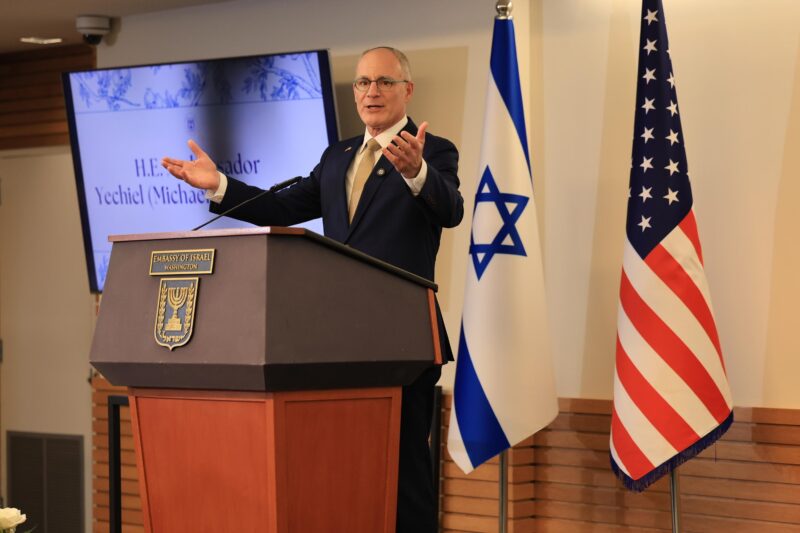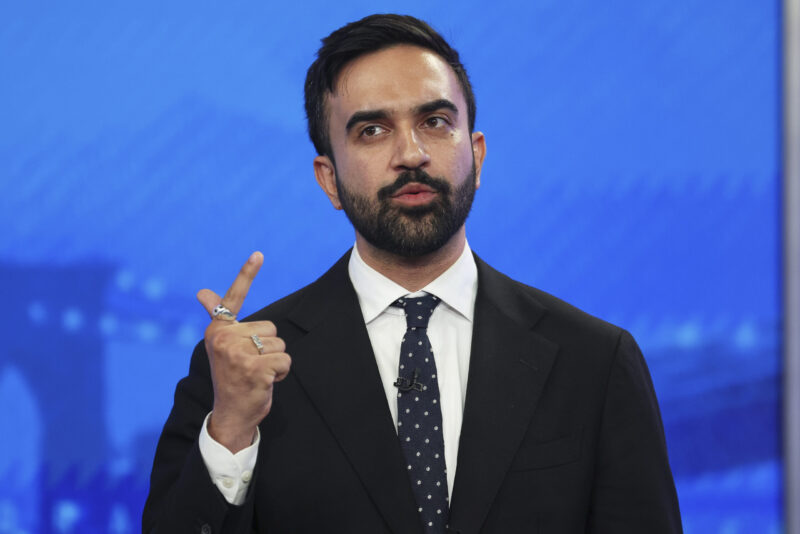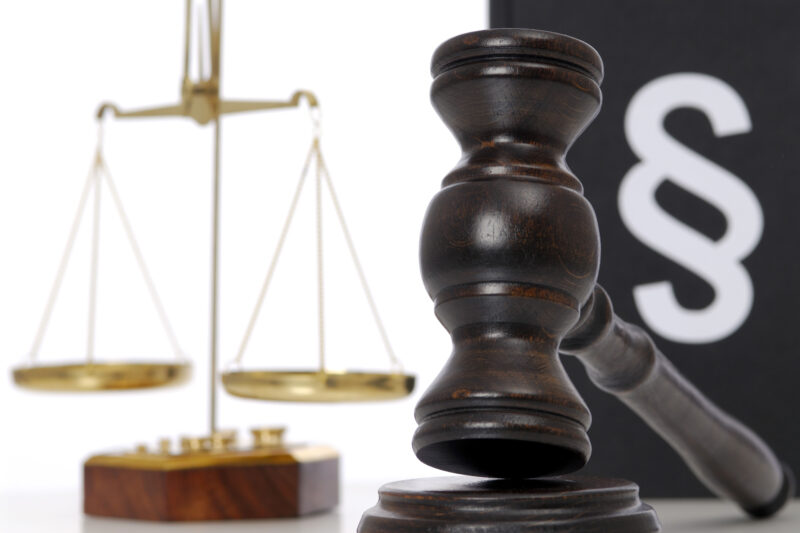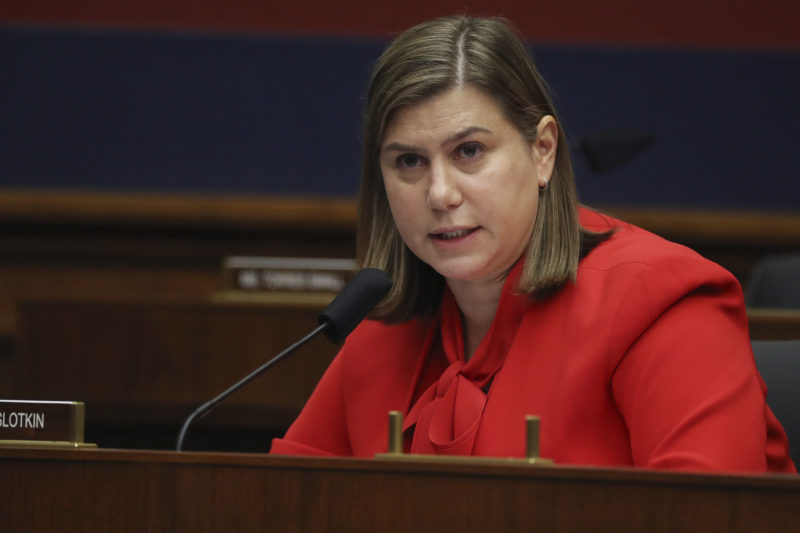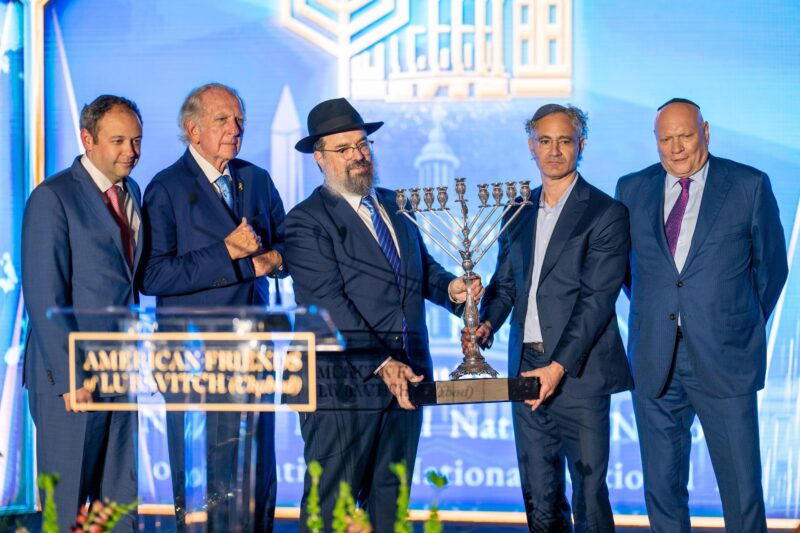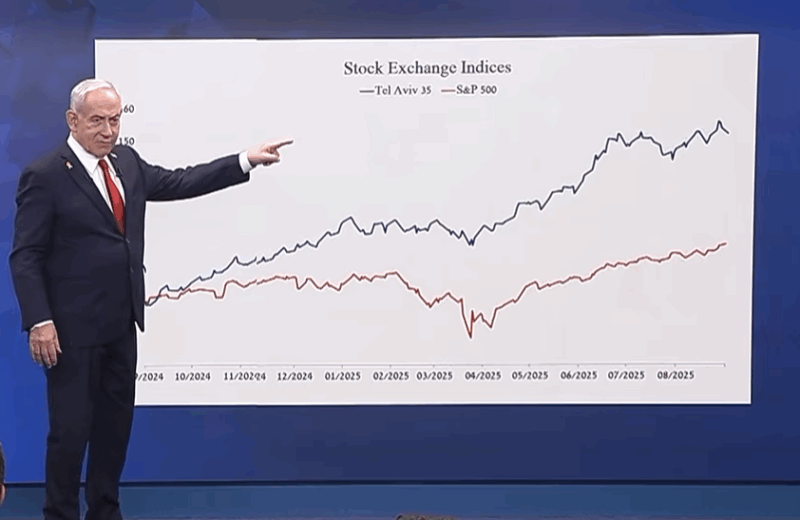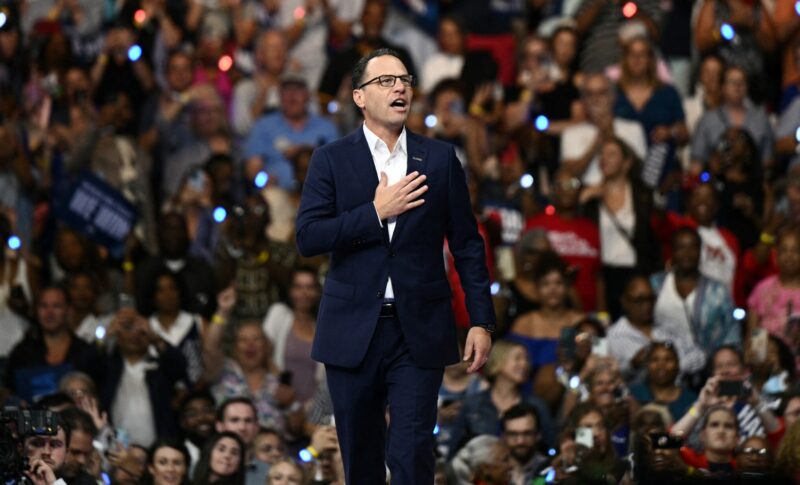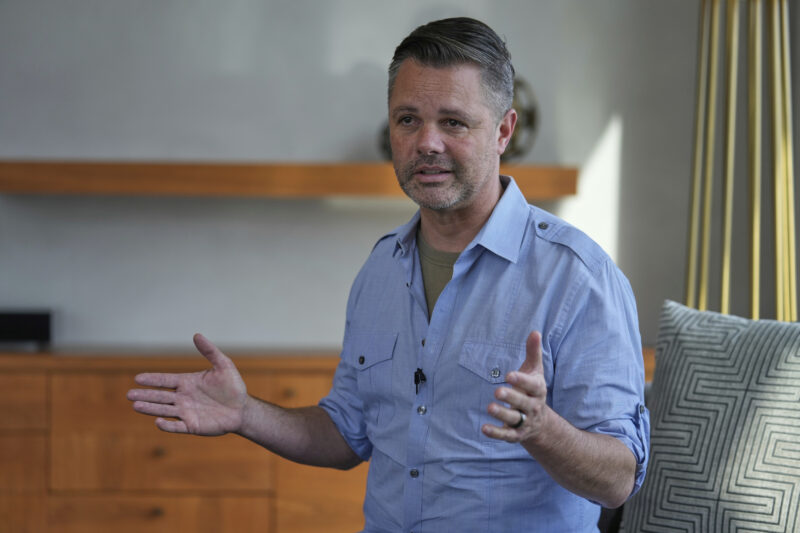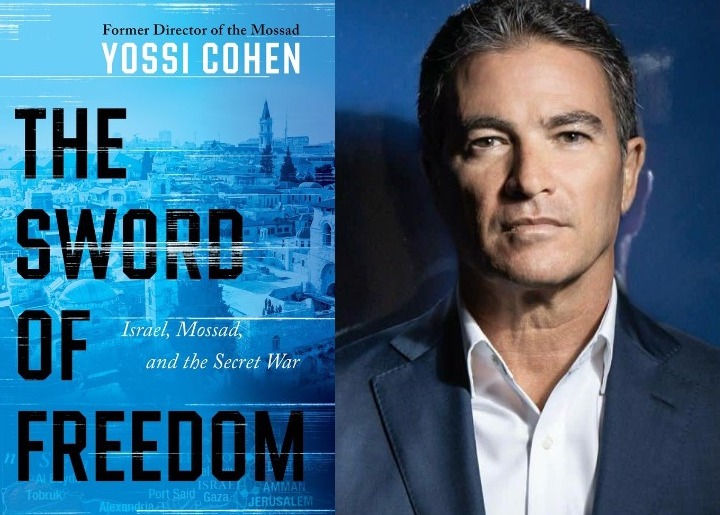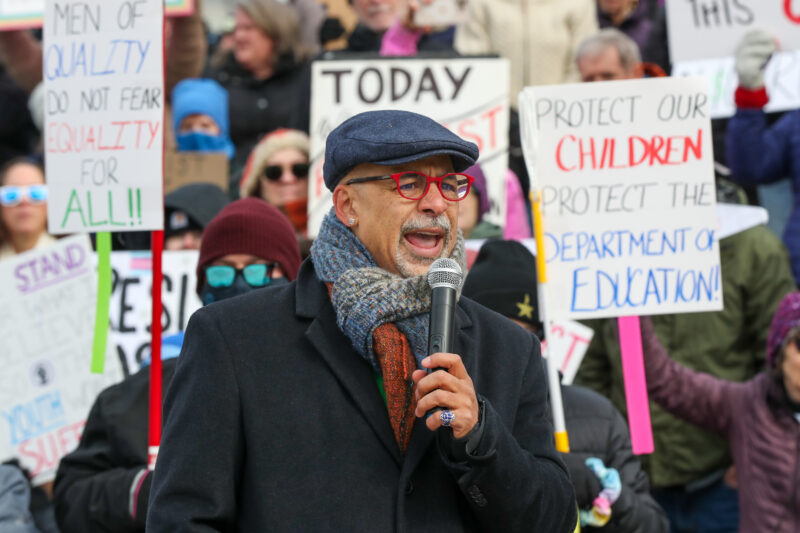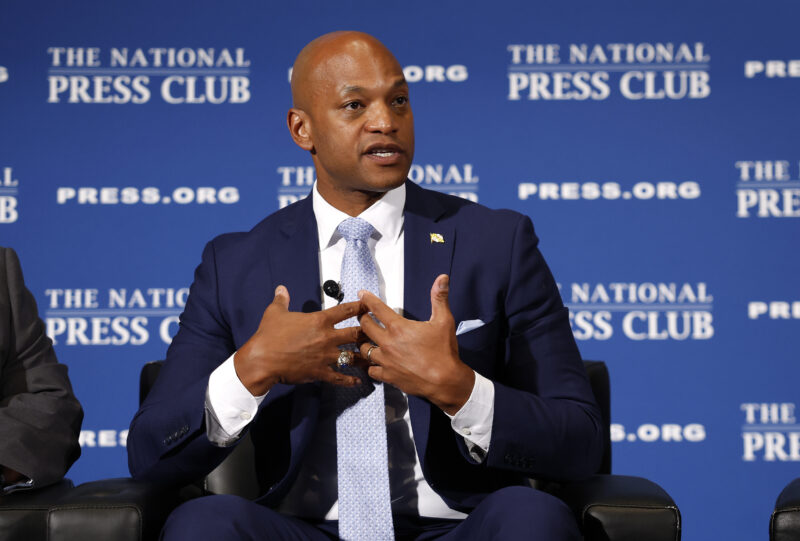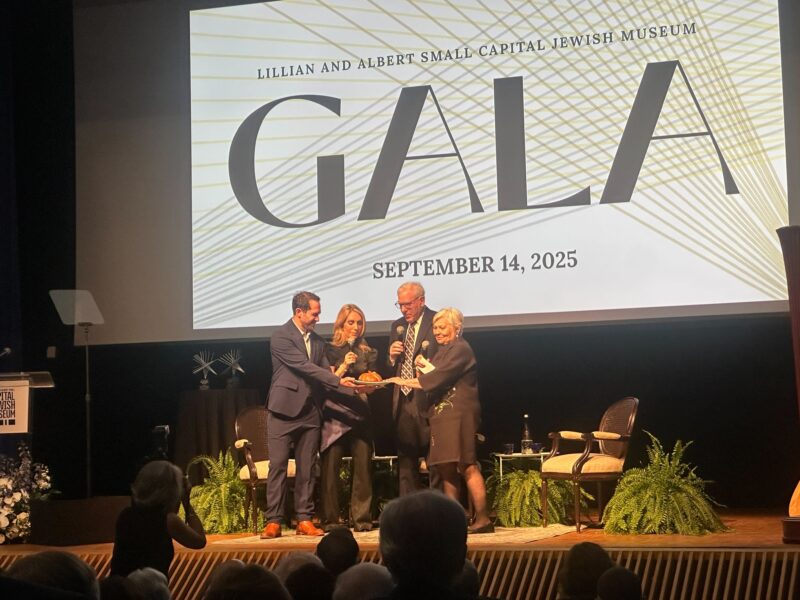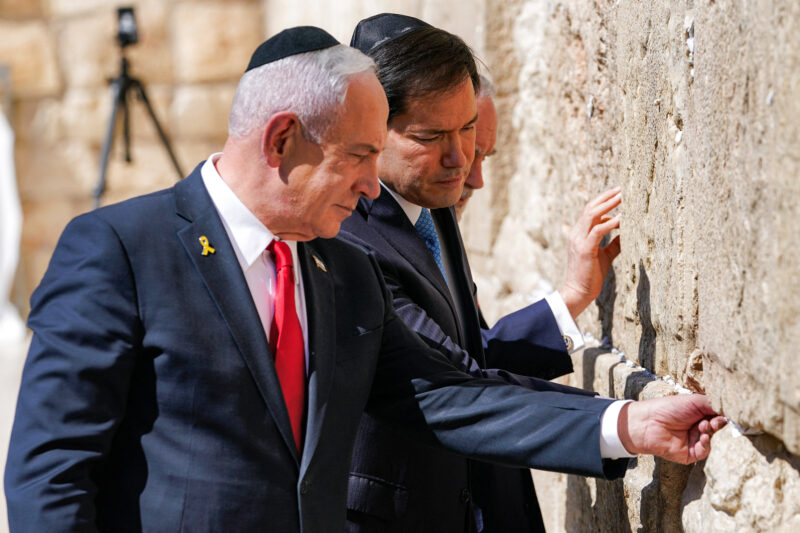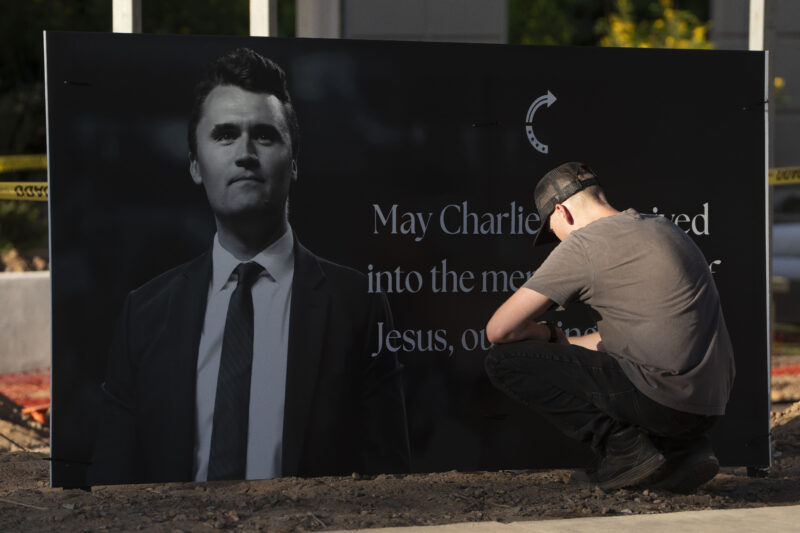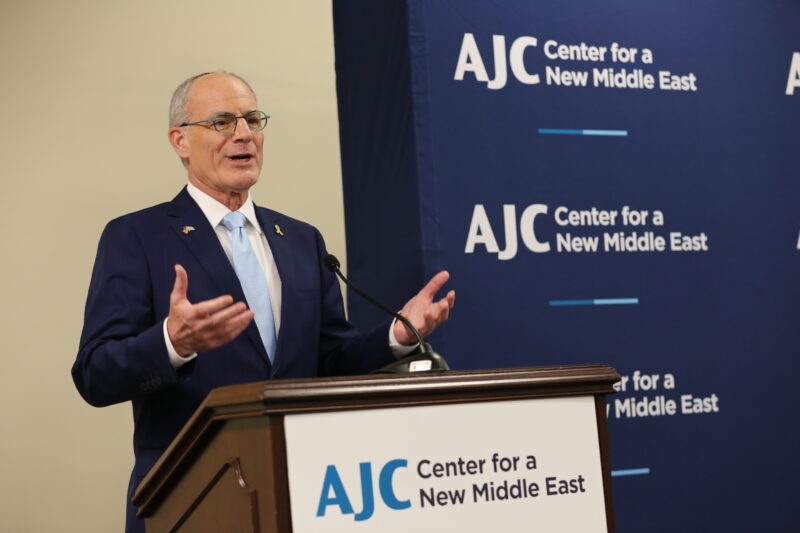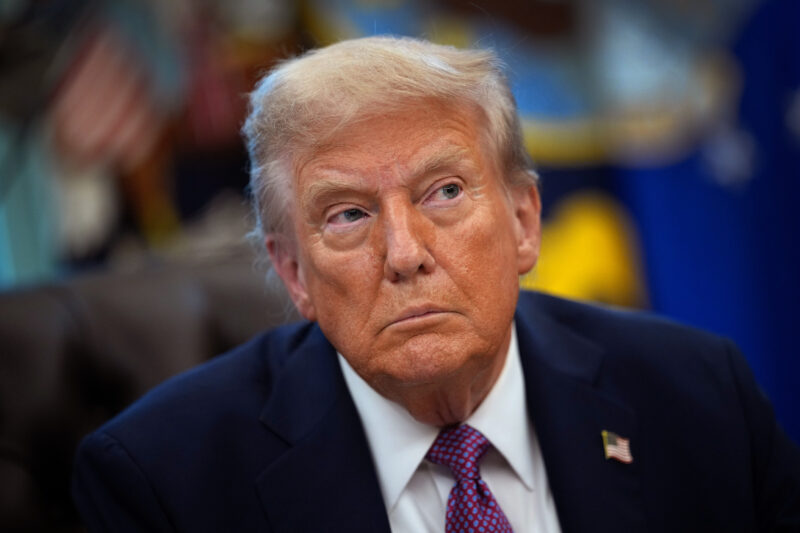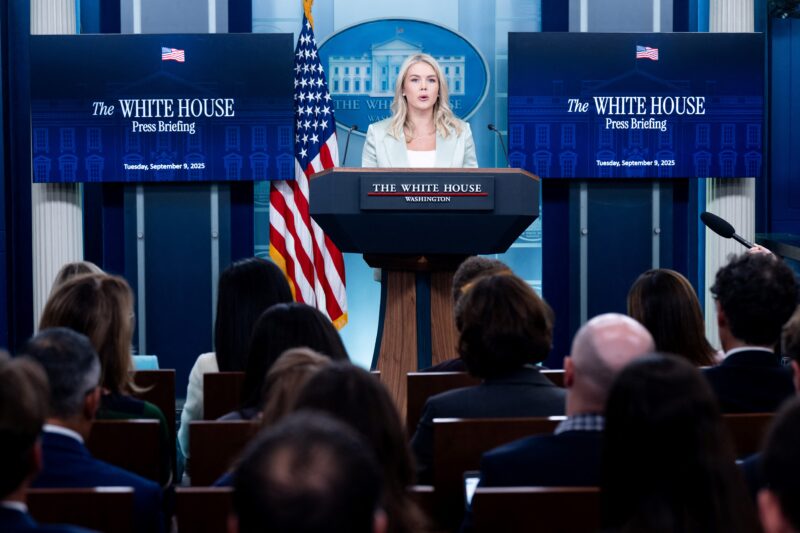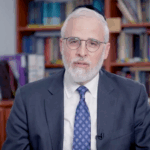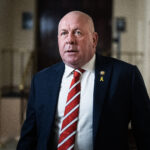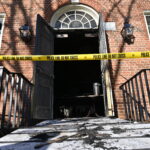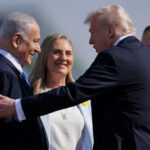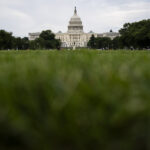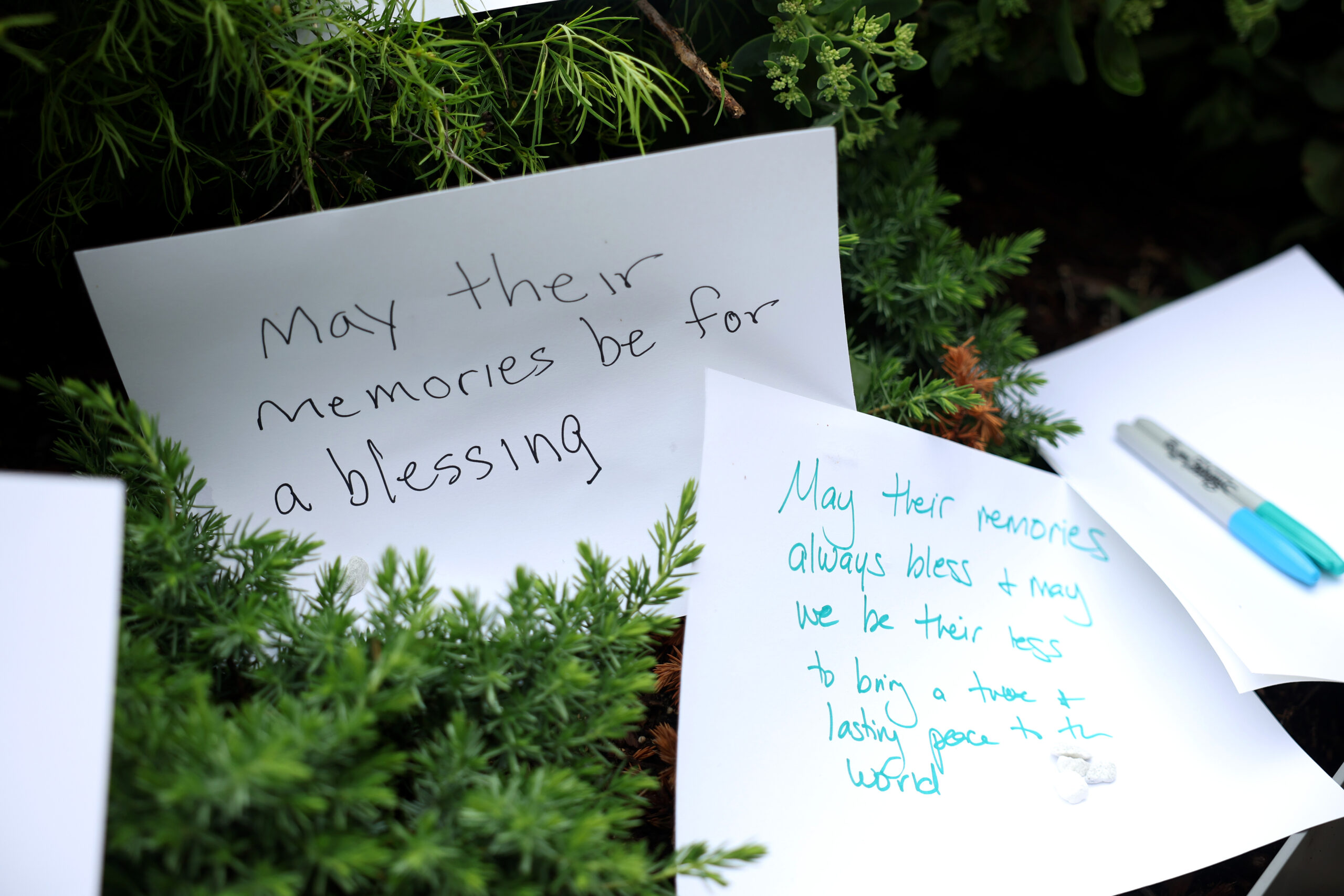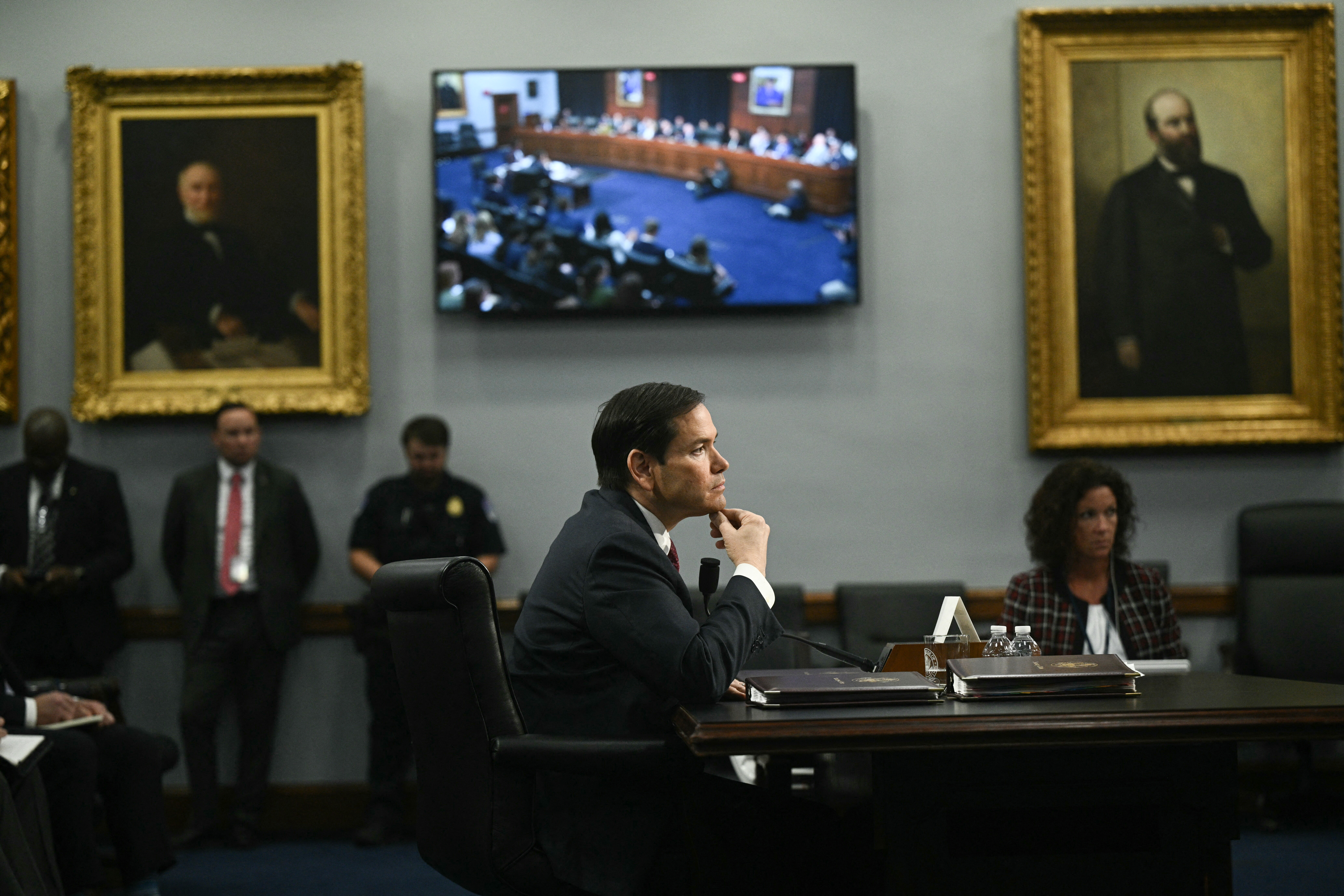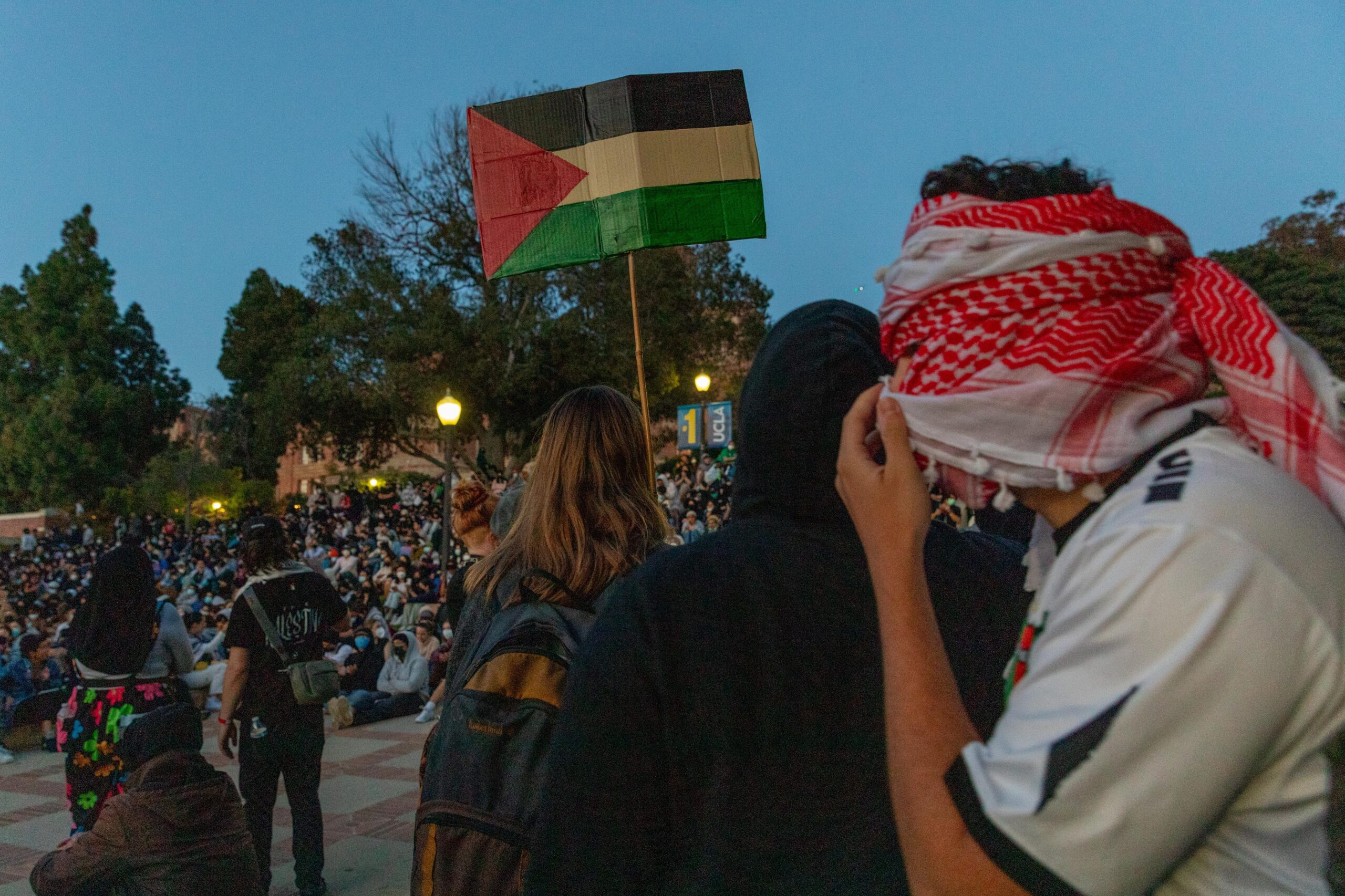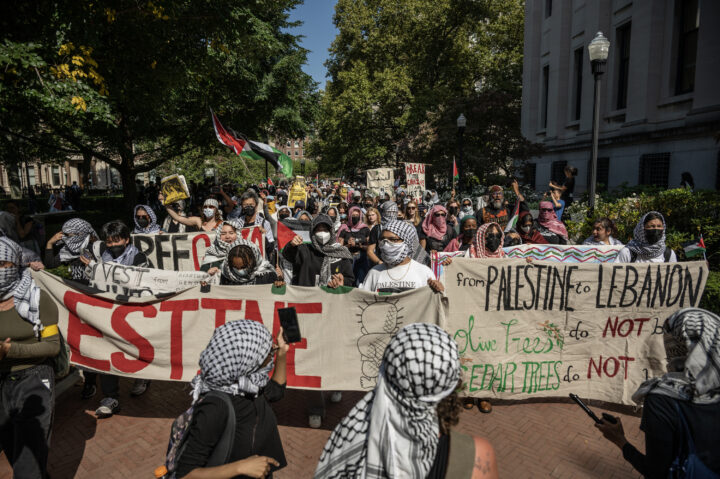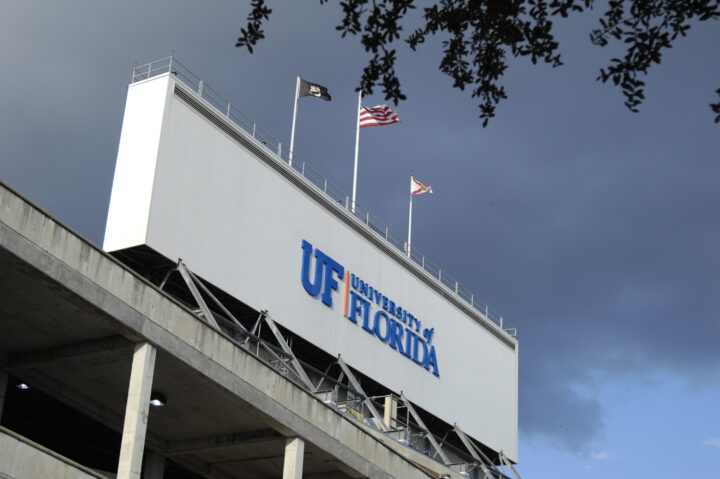To mark the second anniversary of the Oct. 7 attacks in Israel, the Jewish Insider team asked leading thinkers and practitioners to reflect on how that day has changed the world. Here, we look at how Oct. 7 changed higher education

JOSEPH PREZIOSO/AFP via Getty Images
Tents and signs fill Harvard Yard in the pro-Palestinian encampment at Harvard University in Cambridge, Massachusetts, on May 5, 2024.
Analyzing similar digital footprints of two teen shooters, the organization plans to warn schools of risk

Getty Images
Man using smartphone in sofa.
In December 2024, Natalie “Samantha” Rupnow opened fire at Abundant Life Christian School in Madison, Wisc., killing two and injuring six before taking her own life. A month later, Solomon Henderson shot and killed one person and wounded another at Antioch High School in Nashville, Tenn., before also killing himself.
What ties the two heinous acts together, a new report from the Anti-Defamation League’s Center on Extremism suggests, is an online community of white supremacists increasingly recruiting and inspiring school shooters like Rupnow and Henderson.
The research, published Thursday as an interactive timeline, analyzes the two school shootings that occurred weeks apart. Despite happening in different states, the report found overlapping online activity between the young perpetrators.
In the months leading up to the shootings, both perpetrators were active on the website WatchPeopleDie, a forum where users can post and view real images and videos of violence — including murders, torture, rape, executions, beheadings, suicides, dismemberments, accidents and animal killings.
Rupnow and Henderson carried out their attacks 18 and 19 months after creating WPD accounts, respectively. Both shooters posted, reposted, endorsed, replied to or otherwise engaged with extremist content on the site.
ADL researchers found that extremist material — such as white supremacist and antisemitic manifestos and videos of white supremacist and antisemitic mass murders — was widely accessible on WPD, which originated as a forum on Reddit but is now independent after being banned from the site in 2019 after a user livestreamed the white supremacist Christchurch shooting in New Zealand.
Many videos of extremist mass killings, including those that were livestreamed as they occurred, remain accessible on the site, including the 2022 Buffalo Tops supermarket attack and the 2019 Halle synagogue shooting in Germany.
Clips from attacks and images of shooters using stylized filters and text, set to music that glorifies the killers, are also popular on the site. Henderson posted one such graphic depicting Payton Gendron, the gunman who killed 10 Black people in the Buffalo supermarket shooting, as a saint holding his manifesto in place of a Bible.
The ADL said it plans to share the timeline with 16,000 school superintendents, urging them to “consider how their students may be able to access the type of dangerous content highlighted in the timeline while on their campuses and in their classrooms.”
“Kids and teens today have lived their entire lives with easy internet access, putting them even more at risk of encountering violent extremism online,” Jonathan Greenblatt, the group’s CEO, said in a statement. “Extremist ideas combined with gore websites can inspire users to seek out more extremist content, while violence on extremist platforms can inspire others to look for even more violent content. It’s a vicious cycle, especially for young people. We hope this research guides all stakeholders in taking action to prevent future attacks.”
The former University of Michigan president had been tapped as the University of Florida’s president, but his appointment was rejected by the Florida Board of Governors
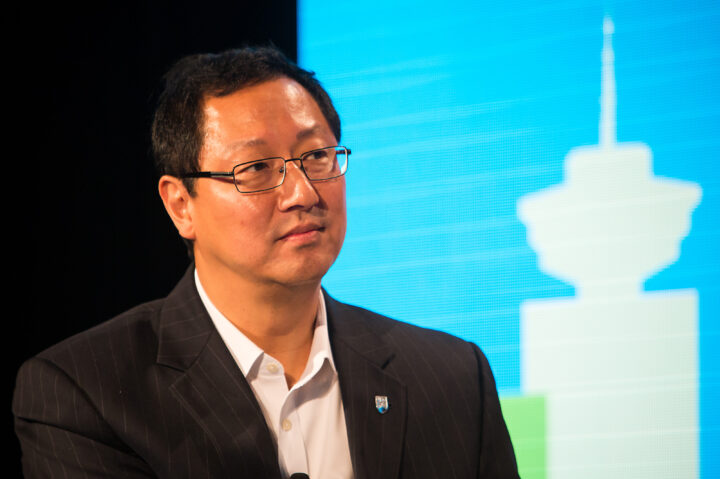
Ben Nelms/Bloomberg via Getty Images
Santa Ono at the Emerging Cascadia Innovation Corridor Conference in Vancouver, British Columbia, Canada, on Tuesday, Sept. 20, 2016.
Santo Ono, the former president of the University of Michigan, is set to become the inaugural director of the Ellison Institute of Technology, a research and development center, he announced on Monday.
“I am humbled to share that I’ve been appointed Global President of the Ellison Institutes of Technology (EIT), reporting directly to its founder and chairman, Larry Ellison,” Ono wrote in a social media post. Ellison is also the founder and chairman of the software company Oracle and a major donor to Jewish and Israeli causes.
The appointment comes two months after Ono was rejected by the Florida Board of Governors as the University of Florida’s next president. At a board meeting in June, Ono, who resigned from his position at the University of Michigan in May, was questioned by the board, which oversees the state’s 12 public universities, about an anti-Israel encampment last year that remained on the Michigan campus for a month. Board members also scrutinized his response to antisemitism on campus after the Oct. 7, 2023, terrorist attacks, which some called inadequate.
“What happened on Oct. 7 deeply affected the members of my community and me personally, and so at UF I would be consistently focused on making sure antisemitism does not rear its head again,” Ono, who was the only finalist considered for the UF position, responded at the time.
Ono also faced criticism from conservatives on the board for his longtime support of diversity, equity and inclusion programs while leading the University of Michigan, although Ono had said he would not bring DEI to the Gainesville school. In March, under pressure from the Trump administration, Ono eliminated centralized DEI offices at Michigan — which have come under intense scrutiny on campuses nationwide for failing to address rising anti-Jewish hate, and at times perpetuating it.
“Looking back, I am deeply grateful for every community I’ve been part of — from the universities I’ve served to the friendships and mentors who have shaped me,” Ono wrote on Monday. “I am even more grateful for the prayers, encouragement, and love from all of you who have walked with me through the seasons of my life, especially during this period of transition. Several opportunities came my way over the past few months, but this one was both special and compelling.”
The Ellison Institute, which is based in Los Angles and Oxford, focuses on research and development in a range of areas including cancer treatment and securing food sustainability. Ono wrote that he is “most excited” about the institute’s reciprocal agreement with the University of Oxford.
Scott said he was ‘shocked’ Ono was nominated and that ‘clearly the search firm didn’t disclose everything’
Kevin Dietsch/Getty Images
Sen. Rick Scott (R-FL) speaks on government funding during a press conference at the U.S. Capitol on March 06, 2024 in Washington, DC.
Sen. Rick Scott (R-FL) accused the search firm that oversaw the failed nomination of former University of Michigan President Santa Ono to lead the University of Florida of not properly vetting and disclosing the candidate’s record.
“Clearly the search firm didn’t disclose everything to anybody,” Scott told Jewish Insider on Wednesday of SP&A Executive Search, the firm behind the search for UF’s new president. “It sure seems to me, just talking to people on the search committee, they didn’t know all this before their votes. That’s wrong. That’s on the search firm, they didn’t do their job. It appears to me that that’s what happened.”
The vote by Florida’s Board of Governors, which oversees the state’s public universities, to approve Ono’s nomination failed 10-6 on Tuesday, the first time that the Board of Governors has ever voted down a university trustee board’s leadership selection.
SP&A Executive Search did not respond to a request for comment. The firm also picked former University of Florida President Ben Sasse.
The Florida senator said he had been “shocked” that Ono was nominated given what Scott described as a failure to deal with “antisemitic and pro-Hamas” activity on Michigan’s campus during Ono’s tenure and his positions on a Supreme Court ruling relating to diversity on campus.
“It just didn’t fit to what I’ve tried my best to do, to make Florida a great example of where people have the opportunity to go get a great education, where it doesn’t matter the color of your skin, and also where people can go learn in a safe environment,” Scott said.
The University of Michigan experienced some of the most disruptive anti-Israel and antisemitic activity on campus in the wake of the Oct. 7, 2023 Hamas attacks. Ono faced criticism for allowing an anti-Israel encampment to remain in place for over a month last year and admitted he should have engaged with campus Jewish organizations earlier on during protests.
During the 2024-2025 academic year, Ono took a harder stance against anti-Israel activity on campus and became more vocal in support of Israel — leading to pro-Palestinian vandals attacking his home on the one-year anniversary of the Oct. 7 attacks. Ono wrote in an Inside Higher Ed op-ed last month that the “gold standard” Sasse set in combating antisemitism at UF would “not change under my leadership.”
Scott praised the members of the board for digging into Ono’s background and ultimately rejecting him.
“I’m glad that the Board of Governors made the decision to not confirm him, and I hope, when they do the search they’re going to have to change,” Scott said. “But I’m really appreciative of everybody on the Board of Governors that took this seriously and did the research and voted against him.”
Scott said that he wants to see the next nominee to lead UF be someone more in line with Sasse, a former Senate colleague of Scott’s.
“I was appreciative of what Ben Sasse did and I want somebody like that,” Scott said. “We’ve got to get somebody that fits Florida.”
Sasse’s brief term as president was dogged by accusations of financial mismanagement and other issues and tensions with the Board of Trustees.
The Florida Board of Governors rejected Ono’s confirmation, citing his inadequate response to antisemitism at the University of Michigan

Bryan Bedder/Getty Images for Anti-Defamation League
Call Me Back podcast host Dan Senor moderates a session with WashU Chancellor Andrew D. Martin and University of Michigan President Santa Ono at the ADL Never is Now event at Javits Center on March 03, 2025 in New York City.
In an unprecedented move, the Florida Board of Governors rejected the confirmation of Santa Ono, the former president of the University of Michigan, as the University of Florida’s next president.
During a three hour meeting on Tuesday, Ono was questioned by the board, which oversees the state’s 12 public universities, about an anti-Israel encampment last year that remained on the Michigan campus for a month, as well as his stance on antisemitism.
Alan Levine, vice chair of the board, grilled Ono about what he described as an inadequate response to antisemitism at Michigan during Ono’s tenure to the Oct. 7, 2023, Hamas attacks in Israel, The Gainesville Sun reported.
“What happened on Oct. 7 deeply affected the members of my community and me personally, and so at UF I would be consistently focused on making sure antisemitism does not rear its head again,” Ono responded.
Ono also faced criticism from conservatives on the board for his longtime support of diversity, equity and inclusion programs while leading the Ann Arbor university, although Ono has said he would not bring DEI to the Gainesville school. In March, under pressure from the Trump administration, Ono eliminated centralized DEI offices at Michigan — which have come under intense scrutiny on campuses nationwide for failing to address rising anti-Jewish hate, and at times perpetuating it.
Ono denounced antisemitism in an Inside Higher Ed op-ed last month. He wrote, “I’ve worked closely with Jewish students, faculty and community leaders to ensure that campuses are places of respect, safety and inclusion for all.”
Prominent conservatives who raised objections to Ono included Donald Trump Jr. and Florida Reps. Byron Donalds, Greg Steube and Jimmy Patronis. His confirmation was not publicly opposed by the state’s Republican governor, Ron DeSantis.
The decision by the 17-member Florida Board of Governors comes a week after UF’s Board of Trustees had unanimously approved Ono as its president-elect. The vote to confirm Ono failed 10-6, the first time that the Board of Governors has ever voted down a university trustee board’s leadership selection.
Ono was seen as an ally of Michigan’s pro-Israel community who was quick to condemn acts of antisemitism — leading to pro-Palestinian vandals attacking his home on the one-year anniversary of Hamas’ Oct. 7 attack. In November, he visited the Nova Music Festival Exhibition in Detroit alongside several students.
Under the leadership of Ben Sasse, a former Nebraska senator who served as UF president until stepping down last year, Ono wrote that the school has been a “national leader in this regard — setting a gold standard in standing firmly against antisemitism and hate.” Sasse was among the first university presidents to immediately condemn Hamas’ Oct. 7 attack — as other campus leaders seemed paralyzed over how to respond.
“That standard will not change under my leadership,” Ono said last month. He pledged to “continue to ensure that UF is a place where Jewish students feel fully supported, and where all forms of hatred and discrimination are confronted clearly and without hesitation.” Nearly 20% of the university’s student body is Jewish.
The search for University of Florida’s 14th president will now start over.
Plus, the NYC candidate who won't say 'Jewish state’

Andrew Harnik/Getty Images
A police officer stands at the site of a fatal shooting at the Capital Jewish Museum on May 22, 2025 in Washington, DC.
Good Friday morning.
In today’s Daily Kickoff, we cover comments by Zohran Mamdani at last night’s UJA-Federation of New York town hall with the leading Democratic candidates in New York City’s mayoral primary and report on the Trump administration’s move to strip Harvard University of its ability to enroll foreign students. In the aftermath of Wednesday’s deadly shooting outside the Capital Jewish Museum in Washington, we talk to friends of the victims, Yaron Lischinsky and Sarah Milgrim, and report on comments by pro-Israel leaders connecting the murder to anti-Israel advocacy on the political extremes and highlight a statement by 42 Jewish organizations urging additional action from the federal government to address antisemitism. Also in today’s Daily Kickoff: Sen. John Cornyn, Rep. Josh Gottheimer and Ambassador Yechiel Leiter.
Ed. note: In honor of Memorial Day on Monday, the next edition of the Daily Kickoff will arrive on Tuesday, May 27.
What We’re Watching
- The fifth round of nuclear negotiations between the U.S. and Iran will take place today in Rome. Israeli Strategic Affairs Minister Ron Dermer and Mossad Director David Barnea are also set to meet with Middle East envoy Steve Witkoff in Rome to coordinate Israel’s views with the U.S.
- Rep. Ritchie Torres (D-NY) will deliver the keynote address at the 51st commencement ceremony of Touro’s Lander Colleges on Sunday at Lincoln Center.
What You Should Know
A QUICK WORD WITH JOSH KRAUSHAAR
In a series of upcoming Democratic primaries, Jewish and pro-Israel groups are deciding whether to press their political case and go on offense behind stalwart allies — or take a more cautious approach, focused on preventing candidates that are downright hostile to Jewish concerns from emerging as nominees, Jewish Insider Editor-in-Chief Josh Kraushaar writes.
It’s an unusual place to be in. Until recently, most Democratic candidates were reliably attuned to Jewish communal interests, and there wasn’t much of a need for groups to play in primaries, except in rare situations. That changed with the emergence of the anti-Israel Squad of far-left Democrats, which led pro-Israel Democratic groups like DMFI to step up and support mainstream candidates, and pushed AIPAC to launch a super PAC to become much more involved in direct political engagement.
Now, even the issue of fighting or speaking out against antisemitism — far from the more heated debate over Israel policy — is no longer a consensus issue for Democrats. Senate Democrats (when in charge of the upper chamber) hesitated to hold hearings on campus antisemitism, a leading candidate for mayor of New York City declined to sign onto a legislative resolution commemorating the Holocaust and an increasingly credible New Jersey gubernatorial candidate has declined to distance himself from Louis Farrakhan.
What was once the extreme has now come uncomfortably close to the Democratic mainstream. The urgency of ensuring most candidates condemn antisemitism and anti-Israel radicalism wherever it rears its ugly head was made clear after the horrific murder on Wednesday night of two Israeli Embassy employees by a terrorist with a radical, anti-Israel background. Far too often, the growing number of threats to Jews along with the rise of anti-Israel sloganeering featuring antisemitic hate or adoption of terrorist symbols has been met with a benign acceptance.
That’s made the tactical decisions from outside Jewish and pro-Israel groups involved in politics a lot more significant. There are a number of Democratic primaries coming up featuring a stalwart ally of the Jewish community, an anti-Israel candidate with checkered history on antisemitism and a middle-of-the-road candidate whose record on these issues is respectable, but not always reliable.
Take next month’s New Jersey governor’s primary. Rep. Mikie Sherrill (D-NJ), seen as the front-runner, has compiled a generally pro-Israel record in Congress but hasn’t stuck her neck out as much as her Democratic colleague, Rep. Josh Gottheimer (D-NJ). Gottheimer has yet to catch momentum in the crowded primary, and one of the other credible challengers is Newark Mayor Ras Baraka, whose condemnation of Israel’s war in Gaza and praise for Farrakhan is viewed as beyond the pale.
At a certain point, do Jewish groups rally behind the center-left front-runner to block the more problematic candidate, or stick with the most supportive candidate?
The New York City mayoral primary next month provides another key test. State Assemblyman Zohran Mamdani is the favorite of the DSA base, and thanks to strong support from that far-left faction, is polling in second place. But due to his high profile and moderate pro-Israel message, former Gov. Andrew Cuomo looks like the clear front-runner — even as Jewish voters haven’t yet consolidated behind him in the crowded field.
To Cuomo’s benefit, New York City mayoral primaries have a ranked-choice system that prevents a candidate with a small but passionate base from winning a small plurality in a crowded field. In theory, that should help Cuomo. But as the leading moderate candidate in the race, he could also benefit from consolidating the centrist vote, which is still up for grabs.
Within the sizable Jewish constituency in New York City, Cuomo faces pushback from some Orthodox voters still angry about the then-governor’s lockdowns and expansive COVID-19 restrictions during the pandemic, making his pitch in support of Israel and against antisemitism far from a slam dunk in certain circles. His resignation from the governorship amid allegations of sexual misconduct is also a factor for some Jewish voters, as well.
But if pro-Israel, Jewish voters divide their support among other candidates, it could help Mamdani, whose record is the least palatable to these same constituents.
The fact that many Democrats in New Jersey and New York City, two places with among the largest concentrations of Jewish voters in the Diaspora, are not automatically stalwart allies of mainstream Jewish interests, is itself a sign of the changing political times and the evolving nature of the Democratic Party. It may also explain why there appears to be more of an effort to play defense — a focus on blocking the most objectionable candidates from winning high office — rather than hoping for the best, and seeing where the chips fall.
TYING IT TOGETHER
Pro-Israel leaders link anti-Israel advocacy to fatal shooting

Pro-Israel leaders and lawmakers in the United States on Thursday connected the killing of two Israeli Embassy employees outside the Capital Jewish Museum in Washington to the anti-Israel advocacy seen on the political extremes throughout the country since the Oct. 7, 2023, attacks, characterizing it as a culmination of such rhetoric and, in some cases, the failure of some politicians to denounce it, Jewish Insider’s Marc Rod and Emily Jacobs report.
What they’re saying: Sen. John Fetterman (D-PA) told Jewish Insider that the attack should be a signal to the left that it needs to rethink its rhetoric on Israel and Zionism. He compared the anti-Israel movement in the United States to a “cult” that has been stoked online and is using inherently violent slogans while its members “try to hide behind this idea that it’s free speech to intimidate and terrorize members of the Jewish community.” A coalition of 42 Jewish organizations, in a statement, described the murders as “the direct consequence of rising antisemitic incitement in places such as college campuses, city council meetings, and social media that has normalized hate and emboldened those who wish to do harm.”
Hill talk: Sen. John Cornyn (R-TX) called on the Justice Department and the FBI to investigate the political organizations that Elias Rodriguez, the suspect in the shooting outside the Capital Jewish Museum, claims to be an active member of, Jewish Insider’s Emily Jacobs reports.





